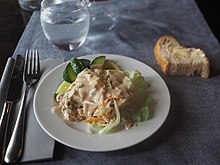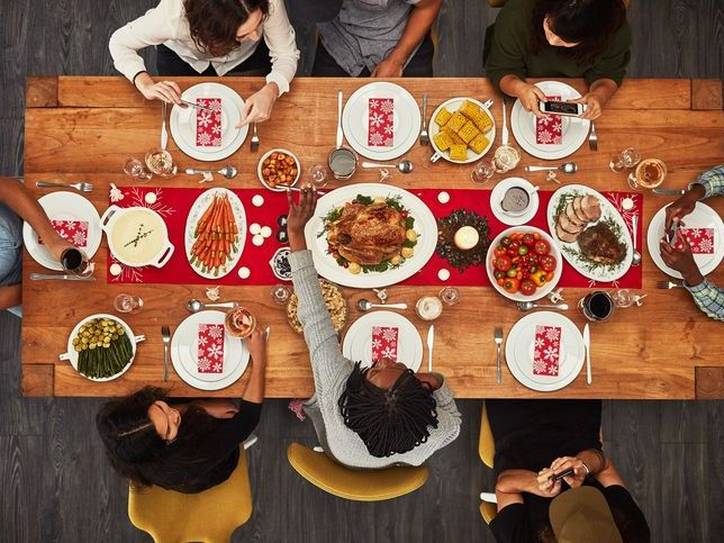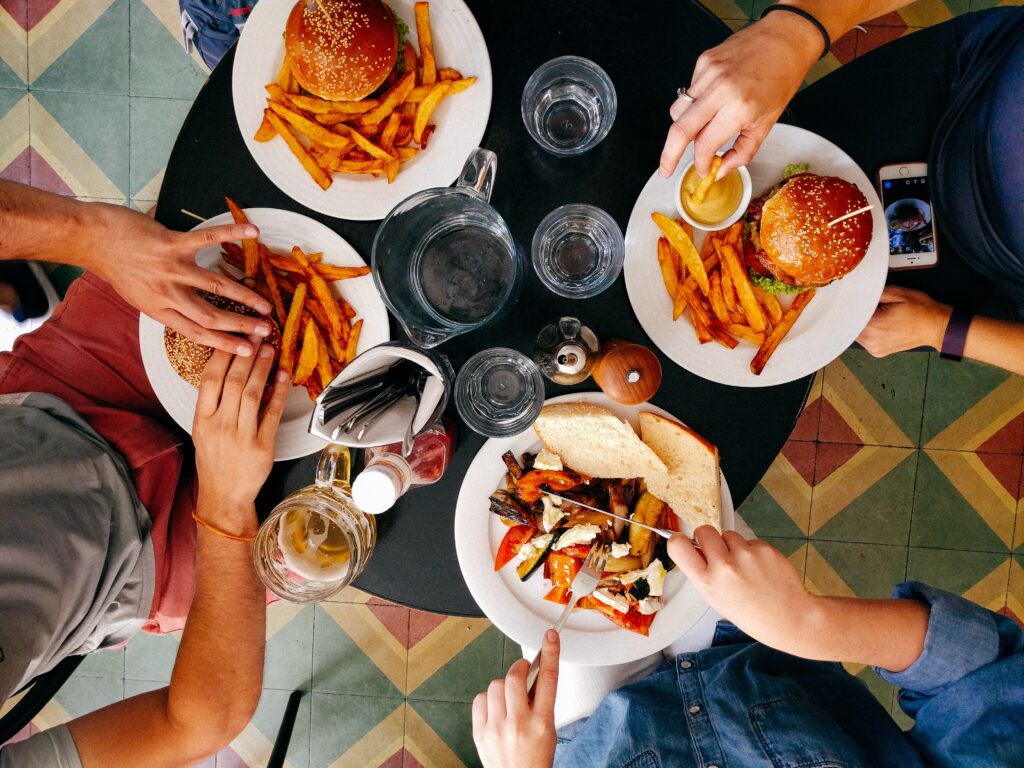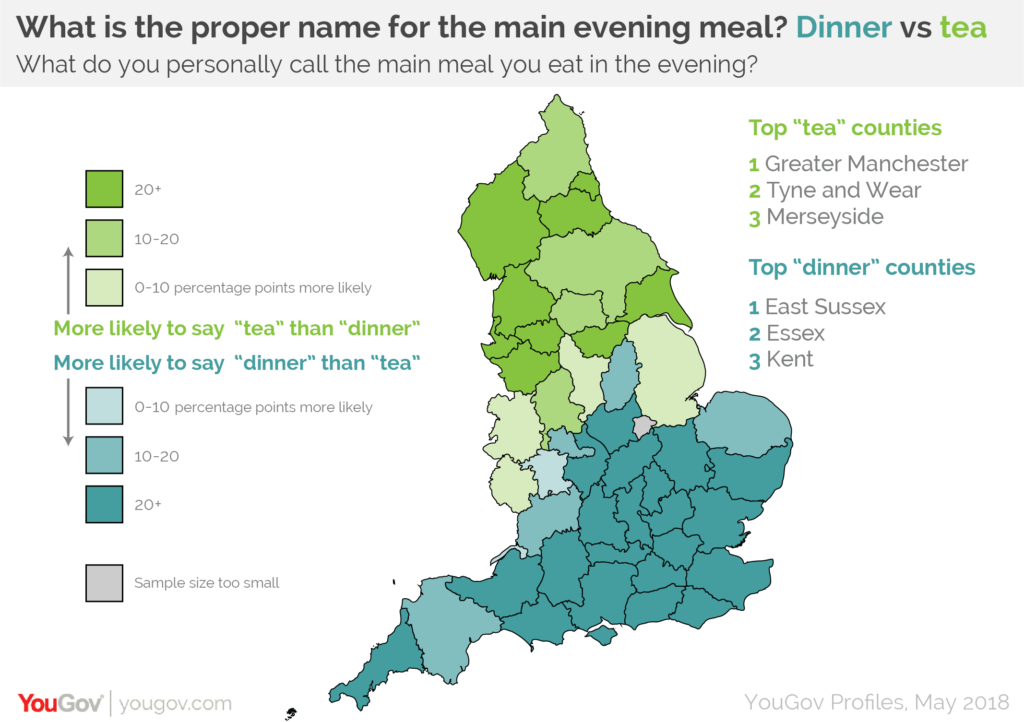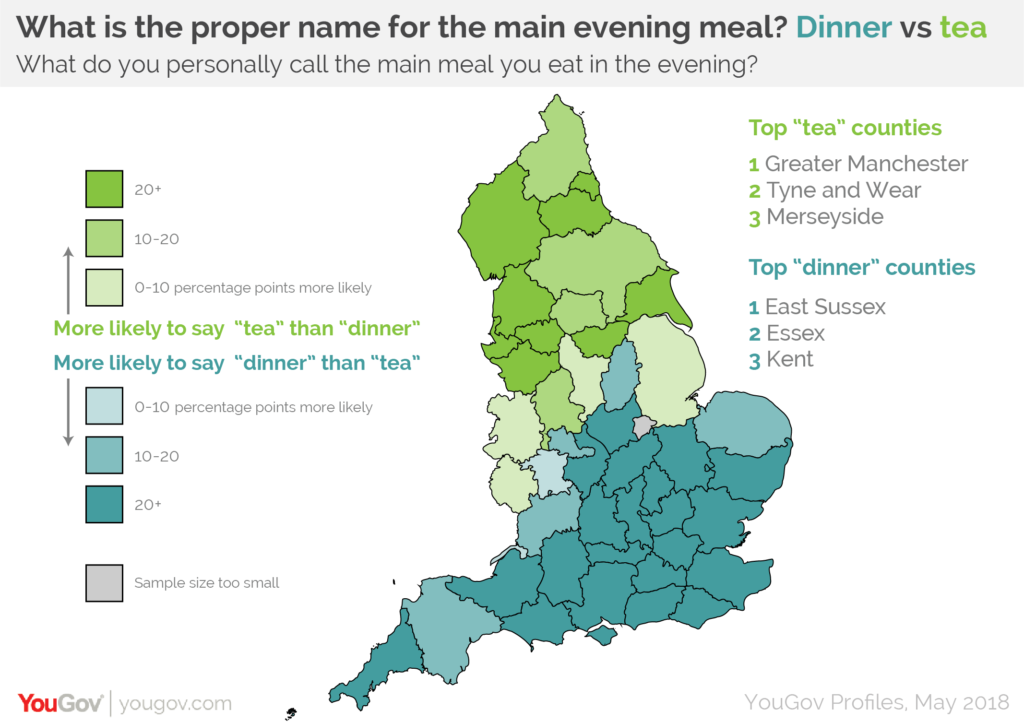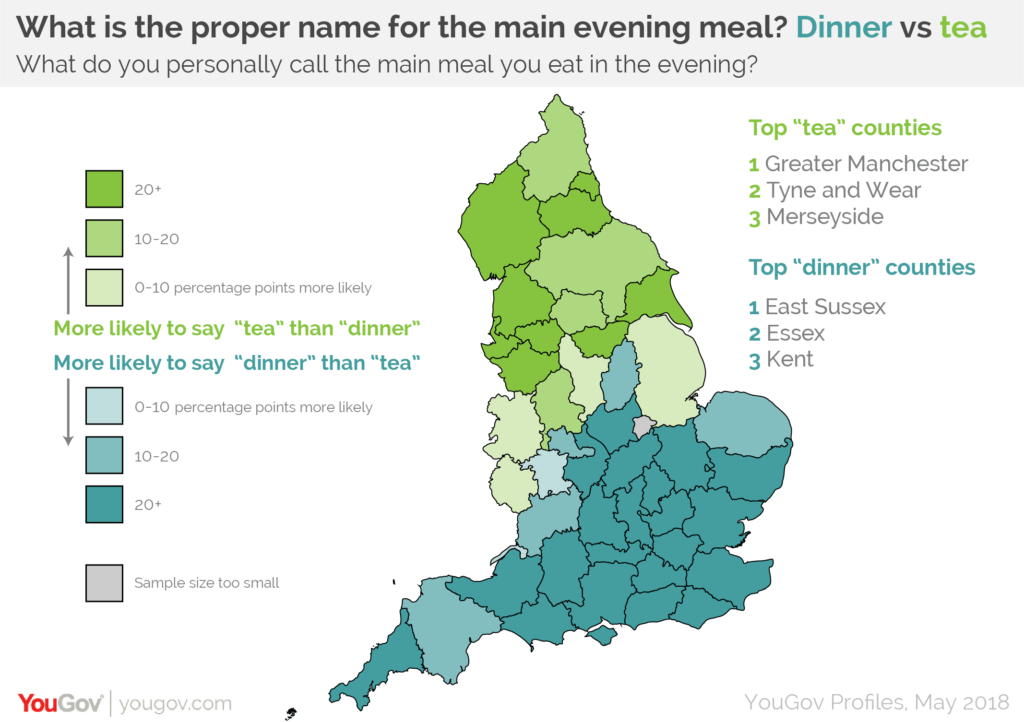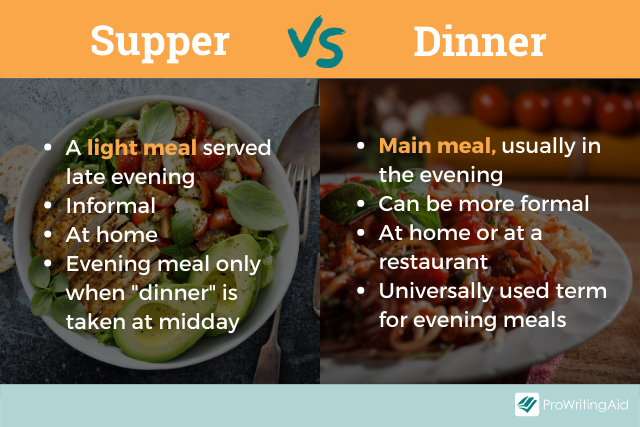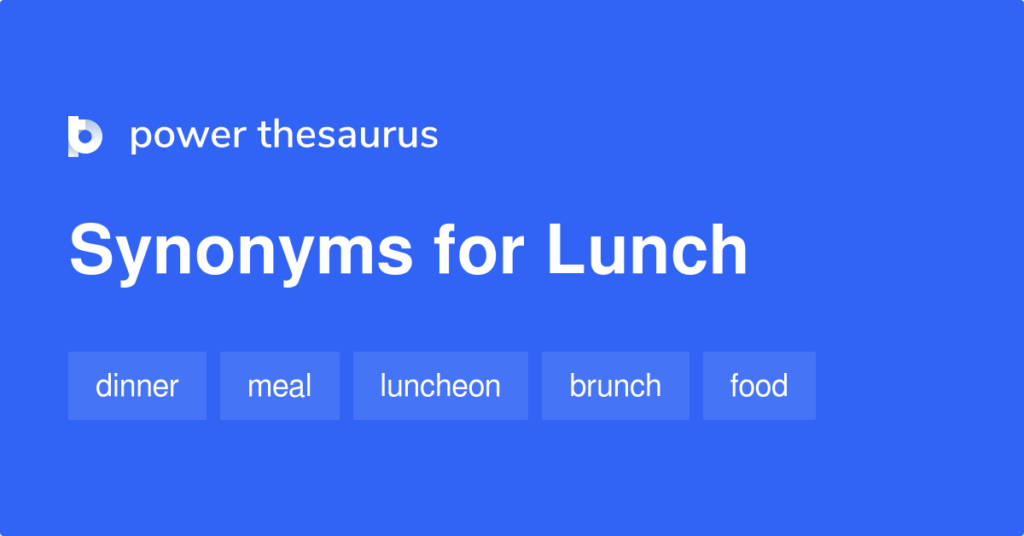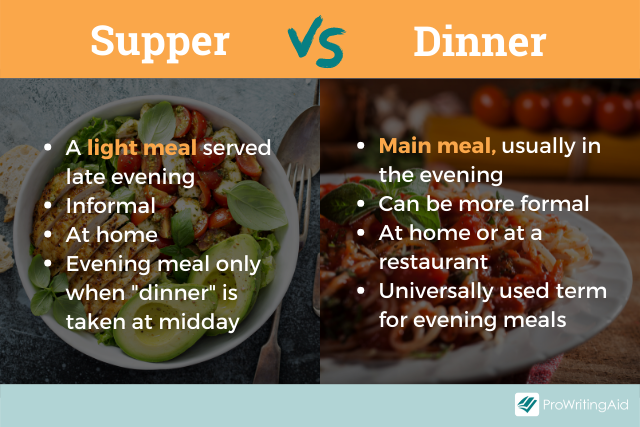“Lunch was a very rare word up until the 19th Century,” he says. One theory is that it’s derived from the word “nuncheon”, an old Anglo-Saxon word which meant a quick snack between meals that you can hold in your hands. It was used around the late 17th Century, says Yeldham.
What does lunch literally mean?
lunch (n.) “mid-day repast, small meal between breakfast and dinner,” 1786, a shortened form of luncheon (q.v.) in this sense (1650s), which is of uncertain origin; it appears to be identical with an older word meaning “thick piece, hunk” (1570s), which perhaps evolved from lump (n.) [OED].
Why is breakfast called breakfast?
That first meal of the day is more commonly known as breakfast. If you divide this compound word into two parts, you’ll see it’s made up of “break” and “fast.” To fast means to go without food. So “breakfast” means to break the fast you’ve been observing since you went to sleep the night before!
Why do British call lunch dinner?
The Army used to sent the men to dinner at midday . There is also a regional difference, and the midday meal was more often referred to as dinner in Northern England. The evening meal was usually called ‘tea’, and still is in the North of England.
What does lunch literally mean?
lunch (n.) “mid-day repast, small meal between breakfast and dinner,” 1786, a shortened form of luncheon (q.v.) in this sense (1650s), which is of uncertain origin; it appears to be identical with an older word meaning “thick piece, hunk” (1570s), which perhaps evolved from lump (n.) [OED].
Why do Brits say tea for dinner?
In the past, high tea was an alternative to afternoon tea. It combined snacks and a hearty meal and was usually served at about 6pm.
Why did people stop saying supper?
“Supper” became “dinner” because evenings became the only time working class families were able to gather for a meal.
What is lunch at night called?
Supper is used especially when the meal is an informal one eaten at home, while dinner tends to be the term chosen when the meal is more formal. In some dialects and especially in British English, supper can also refer to a light meal or snack that is eaten late in the evening.
Which meal is best to skip?
Skipping breakfast and other meals is one behavior studied as a factor influencing weight outcomes and dietary quality. Based on evidence that skipping breakfast reduces total daily caloric intake, some weight-loss recommendations include skipping breakfast (i.e., intermediate fasting) as one strategy to use.
Why is dinner called wedding breakfast?
The meal that follows your wedding ceremony is known as the wedding breakfast, the name comes from the past when traditionally the wedding ceremony was held after mass, the whole wedding party would fast before mass and so for the bride and groom this was their first meal.
What do British people call breakfast?
Breakfast: This is also called brekkie by some but not common. Breakfast is usually the same everywhere though the contents of breakfast will vary hugely. Both Britain and Ireland are famous for their cooked breakfast which is known as “full” or “cooked” breakfast.
What is tea time called in England?
Traditionally, Afternoon Tea is served around 4 pm. It was not created to replace dinner but rather to fill the gap between an early lunch and a late dinner. Small sandwiches, scones, biscuits, and tea were typically on small ornamental three-tier serving trays.
What is the true meaning of dinner?
In modern use dinner and supper both usually refer to the main meal of the day eaten in the evening, with dinner being the slightly more formal word. Formerly, dinner typically referred to a main meal eaten in the middle of the day, while supper referred to a light meal eaten in the evening.
What is the literal meaning of dinner?
/ (ˈdɪnə) / noun. a meal taken in the evening. a meal taken at midday, esp when it is the main meal of the day; lunch. a formal evening meal, as of a club, society, etc.
What is the full meaning of dinner?
/ˈdɪn·ər/ the main meal of the day, whether eaten in the evening or in the middle part of the day: [ U ] The restaurant is open for dinner from 5 p.m. to 10 p.m.
Why is it called supper and not dinner?
Dictionary.com confirms, “dinner” doesn’t necessarily refer to a specific time of day. It simply means the main meal of the day. “Supper,” however, stems from the Old French word “souper,” meaning “evening meal.” Don’t miss these 15 other words that used to have completely different meanings.
What does lunch literally mean?
lunch (n.) “mid-day repast, small meal between breakfast and dinner,” 1786, a shortened form of luncheon (q.v.) in this sense (1650s), which is of uncertain origin; it appears to be identical with an older word meaning “thick piece, hunk” (1570s), which perhaps evolved from lump (n.) [OED].
What do the British call American biscuits?
Scone (UK) / Biscuit (US) These are the crumbly cakes that British people call scones, which you eat with butter, jam, sometimes clotted cream and always a cup of tea.
What do Scottish people call dinner?
They found that 74 per cent of Scots surveyed call their evening meal dinner. Only 19 per cent think it should be called tea while six per cent said it should be called supper. The findings set Scots apart from our neighbours in the north of England where the evening meal is often referred to as tea.
Is saying supper posh?
And If You Call It Supper, You’re “Posh”, According To The Nation. A new nationwide study exploring Briton’s eating habits has, once and for all, settled the age-old argument about what our evening meal should be called.
What do farmers call dinner?
One of our long-time neighbors noted, “This partly comes from rural families (farmers) having their big meal at noon – dinner, because they needed fuel for the rest of the work day. Then there was a light meal in the evening – supper.”
When did 3 meals a day become a thing?
By the late 18th Century most people were eating three meals a day in towns and cities, says Day. By the early 19th Century dinner for most people had been pushed into the evenings, after work when they returned home for a full meal.

